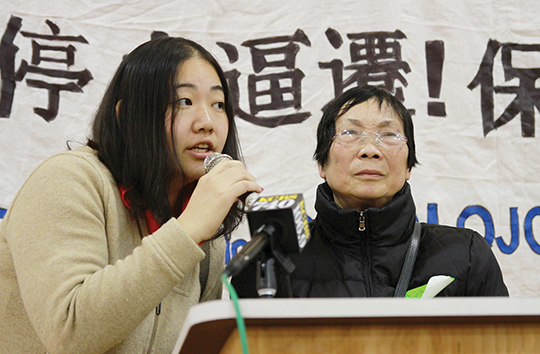Stage listings are compiled by Guardian staff. Performance times may change; call venues to confirm. Reviewers are Robert Avila, Rita Felciano, and Nicole Gluckstern. Submit items for the listings at listings@sfbg.com.
THEATER
OPENING
Crystal Springs Eureka Theatre, 215 Jackson, SF; www.crystalspringstheplay.com. $20-65. Previews Thu/6, 8pm. Opens Fri/7, 8pm. Runs Fri-Sat, 8pm; Sun, 2pm. Through March 23. Eureka Theatre presents Kathy Rucker’s world-premiere drama about parenting in the digital age.
BAY AREA
Accidental Death of an Anarchist Berkeley Repertory Theatre, Roda Theatre, 2015 Addison, Berk; www.berkeleyrep.org. $29-99. Previews Fri/7-Sat/8 and Tue/11, 8pm; Sun/9, 7pm. Opens March 12, 8pm. Runs Tue and Thu-Sat, 8pm (no show April 18; additional 2pm shows March 20 and April 17; also Sat, 2pm, but no matinee March 22); Sun, 2 and 7pm. Through April 20. Berkeley Rep presents comic actor Steven Epp in Dario Fo’s explosive political farce, directed by Christopher Bayes,
Once On This Island Lucie Stern Theatre, 1305 Middlefield, Palo Alto; www.theatreworks.org. $19-73. Previews Wed/5-Fri/7, 8pm. Opens Sat/8, 8pm. Runs Tue-Wed, 7:30pm; Thu-Sat, 8pm (also Sat, 2pm); Sun, 2 and 7pm. Through March 30. TheatreWorks performs the Tony-nominated musical about a star-crossed love affair in the tropics, inspired by Hans Christian Andersen’s The Little Mermaid.
ONGOING
The Altruists Shelton Theater, 533 Sutter, SF; www.shewolftheater.com. $19-34. Thu/6-Sat/8, 8pm. She Wolf Theater performs Nicky Silver’s “politically incorrect” play that exposes the real motivations behind altruistic behavior.
Children Are Forever (All Sales are Final!) Stage Werx Theatre, 446 Valencia, SF; www.brownpapertickets.com. $15. Fri-Sat, 8pm. Through March 22. Writer-performer and comedian Julia Jackson’s well acted and consistently funny autobiographical solo show details her and her female partner’s attempt to adopt a newborn girl from a young African American mother in Florida. Along the way, Jackson’s smart script details the trials, red tape, and unexpected market incentives in the field of adoption for a same-sex, interracial couple. If the generally involving story nevertheless attenuates a little across its two-act structure, Coke Nakamoto’s precise direction (which builds on original direction by W. Kamau Bell) offers a lively framework for Jackson’s excellent characterizations as well as her frank and interesting commentary on the social, political messiness of certain natural urges. (Avila)
Feisty Old Jew Marsh San Francisco Main Stage, 1062 Valencia, SF; www.themarsh.org. $25-100. Sat, 8pm; Sun, 7pm (Sun/9, performance will be a reading of Charlie Varon’s Fish Sisters). Through March 16. Charlie Varon performs his latest solo show, a fictional comedy about “a 20th century man living in a 21st century city.”
Foodies! The Musical Shelton Theater, 533 Sutter, SF; www.foodiesthemusical.com. $32-34. Fri-Sat, 8pm. Open-ended. AWAT Productions presents Morris Bobrow’s musical comedy revue all about food.
Hundred Days Z Space, 450 Florida, SF; www.zspace.org. $10-100. Wed and Sun, 7pm; Thu-Sat, 8pm. Through April 6. Married musical duo the Bengsons (Abigail and Shaun) provide the real-life inspiration and guiding rock ‘n’ roll heart for this uneven but at times genuinely rousing indie musical drama, a self-referential meta-theater piece relating the story of a young couple in 1940s America who fall madly in love only to discover one of them is terminally ill. As an exploration of love, mortality, and the nature of time, the story of Sarah and Will (doubled by the Bengsons and, in movement sequences and more dramatically detailed scenes, by chorus members Amy Lizardo and Reggie D. White) draws force from the potent musical performances and songwriting of composer-creators Abigail and Shaun Bengson (augmented here by the appealing acting-singing chorus and backup band that also feature El Beh, Melissa Kaitlyn Carter, Geneva Harrison, Kate Kilbane, Jo Lampert, Delane Mason, Joshua Pollock). Playwright Kate E. Ryan’s book, however, proves too straightforward, implausible, and sentimental to feel like an adequate vessel for the music’s exuberant, urgent emotion and lilting, longing introspection. Other trappings of director Anne Kauffman’s elaborate production (including an inspired set design by Kris Stone that echoes the raw industrial shell of the theater; and less-than-inspired choreography by the otherwise endlessly inventive Joe Goode) can add texture at times but also prove either neutral figures or distracting minuses in conveying what truth and heft there is in the material. Ultimately, this still evolving world premiere has a strong musical beat at its core, which has a palpable force of its own, even if it’s yet to settle into the right combination of story and staging. (Avila)
Jerusalem San Francisco Playhouse, 450 Post, SF; www.sfplayhouse.org. $20-100. Wed/5-Thu/6, 7pm; Fri/7-Sat/8, 8pm (also Sat/8, 3pm). SF Playhouse presents the West Coast premiere of English playwright Jez Butterworth’s West End and Broadway hit, a three-act revel led by a larger-than-life rebel, a stout boozed-up drug-dealer, habitual fabulist, and latter-day Digger of sorts named Johnny “Rooster” Byron (Brian Dykstra). The dominion of this Falstaffian giant is the English countryside outside his squalid trailer door, not far from Stonehenge, where he seems to incarnate a rather dissipated version of an ancient English independence, like one of the great mythical beings of rural lore. Aptly enough, it’s Saint George’s Day, the feast day of England’s national saint, but it’s not all a party this time around. Authorities have issued a final 24-hour eviction notice on Rooster’s tin door; there are luxury apartments in the works; and there’s concern in town about the underage teens who flock to Rooster like so many fledglings — one, in particular, has gone missing: Phaedra (Julia Belanoff), who we see at the very outset of the play donning a fairy costume and singing the title song, based on the Blake poem and England’s unofficial national anthem. The next 24 hours will be either the breaking point or the apotheosis for all Rooster has made himself out to be. In Butterworth’s big-eyed comedy, we are meant to feel a stake in this outcome whether we actually like Rooster or not — his independence, the scope of his life and vision, suggests the outer limit of possibility in an ever more disciplined and circumscribed world. Director Bill English (who also designed the impressive bucolic-trailer-park set) and his large cast (which includes a strong Ian Scott McGregor as longtime Rooster sidekick, Ginger) dive into the comedy with gusto. But somehow the drama, the larger stakes in the storyline, falls short. A certain requisite intensity and momentum are only fitfully achieved. Dykstra, as the expansive antihero, has the biggest burden here. And while he has an appealing swagger throughout, his wayward brogue and unconvincing bellicosity undercut the culmination of the play’s (admittedly somewhat overwrought) mythopoeic proportions. (Avila)
Lovebirds Marsh San Francisco Studio, 1062 Valencia, SF; www.themarsh.org. $15-50. Thu-Fri, 8pm; Sat, 8:30pm. Through March 15. Theater artist and comedian Marga Gomez presents the world premiere of her 10th solo show, described as “a rollicking tale of incurable romantics.”
Mommy Queerest Exit Studio, 156 Eddy, SF; www.divafest.info. $15-25. Fri-Sat, 8pm. Through March 29. DIVAfest and Guerrilla Rep present Kat Evasco (who co-wrote with John Caldon) in an autobiographical solo comedy about the relationship between a lesbian daughter and her closeted lesbian mother.
Napoli! ACT’s Geary Theater, 415 Geary, SF; www.act-sf.org. $10-120. Wed/5-Sat/8, 8pm (also Sat/8, 2pm); Sun/9, 2pm. American Conservatory Theater offers Bay Area audiences a rare look at one of the Neapolitan plays by Italy’s famed writer Eduardo De Filippo (1900-1984). Set in a humble home in working-class Naples during and just after World War II, amid the transition from Fascism to the postwar order, the play’s broad comedy comes with a strong undercurrent of social drama, as well as unexpectedly poignant moments. Its hero is the head of the household, Gennaro (former ACT core company member Marco Barricelli in a boisterous and gently moving performance), whose upright nature proves increasingly out-of-step with the times and indeed his own family, as his wife, Amalia (a commanding Seana McKenna), begins a black-market trade in coffee beans that becomes an all-out family crime ring by war’s end. While this dynamic offers fodder for some rather hokey if not unenjoyable comedy, the play gathers itself into a serious and timely indictment of privilege and its corrosion of community, as well as the need for solidarity as the only viable, indeed the only satisfying way forward. If the message and the playwright-messenger (De Fillipo, also an actor, originated the part of Gennaro himself) come across today as somewhat heavy-handed, it remains hard to dismiss Napoli! as just a museum piece. That’s due in part to director Mark Rucker’s large and graceful cast, as well as a buoyant new translation by Linda Alper and ACT’s Beatrice Basso. But it’s also the prescience and appositeness for us, all these many years later and miles away, of the play’s fundamentally social and political concerns. (Avila)
“Risk Is This … The Cutting Ball New Experimental Plays Festival” Tides Theater, 533 Sutter, Second Flr; www.cuttingball.com. Free ($20 donation for reserved seating). Fri-Sat, 8pm. (Starting March 14, venue changes to Exit on Taylor, 277 Taylor, SF). Through March 29. Five new works in staged readings, including two from Cutting Ball resident playwright Andrew Saito.
The Scion Marsh San Francisco, 1062 Valencia, SF; www.themarsh.org. $15-60. Thu-Fri, 8pm; Sat, 5pm. Through April 18. In his latest solo show, Brian Copeland (Not a Genuine Black Man; The Waiting Period) explores an infamous crime in his hometown of San Leandro: the 2000 murder of three government meat inspectors by Stuart Alexander, owner of the Santos Linguisa Factory. The story is personal history for Copeland, at least indirectly, as the successful comedian and TV host recounts growing up nearby under the common stricture that “rules are rules,” despite evidence all around that equity, fairness, and justice are in fact deeply skewed by privilege. Developed with director David Ford, the multiple-character monologue (delivered with fitful humor on a bare-bones stage with supportive sound design by David Hines) contrasts Copeland’s own youthful experiences as a target of racial profiling with the way wealthy and white neighbor Stuart Alexander, a serial bully and thug, consistently evaded punishment and even police attention along his path to becoming the “Sausage King,” a mayoral candidate, and a multiple murderer (Alexander died in 2005 at San Quentin). The story takes some meandering turns in making its points, and not all of Copeland’s characterizations are equally compelling. The subject matter is timely enough, however, though ironically it is government that seems to set itself further than ever above the law as much as wealthy individuals or the bogus “legal persons” of the corporate world. The results of such concentrated power are indeed unhealthy, and literally so — Copeland’s grandmother (one of his more persuasive characterizations) harbors a deep distrust of processed food that is nothing if not prescient —but The Scion’s tale of two San Leandrans leaves one hungry for more complexity. (Avila)
Shit & Champagne Rebel, 1772 Market, SF; shitandchampagne.eventbrite.com. $25. Fri-Sat, 8pm. Open-ended. D’Arcy Drollinger is Champagne White, bodacious blonde innocent with a wicked left hook in this cross-dressing ’70s-style white-sploitation flick, played out live on Rebel’s intimate but action-packed barroom stage. Written by Drollinger and co-directed with Laurie Bushman (with high-flying choreography by John Paolillo, Drollinger, and Matthew Martin), this high-octane camp send-up of a favored formula comes dependably stocked with stock characters and delightfully protracted by a convoluted plot (involving, among other things, a certain street drug that’s triggered an epidemic of poopy pants) — all of it played to the hilt by an excellent cast that includes Martin as Dixie Stampede, an evil corporate dominatrix at the head of some sinister front for world domination called Mal*Wart; Alex Brown as Detective Jack Hammer, rough-hewn cop on the case and ambivalent love interest; Rotimi Agbabiaka as Sergio, gay Puerto Rican impresario and confidante; Steven Lemay as Brandy, high-end calf model and Champagne’s (much) beloved roommate; and Nancy French as Rod, Champagne’s doomed fiancé. Sprawling often literally across two buxom acts, the show maintains admirable consistency: the energy never flags and the brow stays decidedly low. (Avila)
The Speakeasy Undisclosed location (ticket buyers receive a text with directions), SF; www.thespeakeasysf.com. $60-90 (add-ons: casino chips, $5; dance lessons, $10). Thu-Sat, 7:40, 7:50, and 8pm admittance times. Through March 15. Boxcar Theater’s most ambitious project to date is also one of the more involved and impressively orchestrated theatrical experiences on any Bay Area stage just now. An immersive time-tripping environmental work, The Speakeasy takes place in an “undisclosed location” (in fact, a wonderfully redesigned version of the company’s Hyde Street theater complex) amid a period-specific cocktail lounge, cabaret, and gambling den inhabited by dozens of Prohibition-era characters and scenarios that unfold around an audience ultimately invited to wander around at will. At one level, this is an invitation to pure dress-up social entertainment. But there are artistic aims here too. Intentionally designed (by co-director and creator Nick A. Olivero with co-director Peter Ruocco) as a fractured super-narrative — in which audiences perceive snatches of overheard stories rather than complete arcs, and can follow those of their own choosing — there’s a way the piece becomes specifically and ever more subtly about time itself. This is most pointedly demonstrated in the opening vignettes in the cocktail lounge, where even the ticking of Joe’s Clock Shop (the “cover” storefront for the illicit 1920s den inside) can be heard underscoring conversations (deeply ironic in historical hindsight) about war, loss, and regained hope for the future. For a San Francisco currently gripped by a kind of historical double-recurrence of the roaring Twenties and dire Thirties at once, The Speakeasy is not a bad place to sit and ponder the simulacra of our elusive moment. (Avila)
Tipped & Tipsy Marsh Studio Theater, 1062 Valencia, SF; www.themarsh.org. $15-50. Sat, 5pm; Sun, 7pm. Through April 6. Solo performer Jill Vice performs her Fringe Festival hit.
Ubu Roi Exit on Taylor, 277 Taylor, SF; www.cuttingball.com. $10-50. Thu/6, 7:30pm; Fri/7-Sat/8, 8pm (also Sat/8, 2pm); Sun/9, 5pm. Cutting Ball Theater performs Alfred Jarry’s avant-garde parody of Shakespeare’s Macbeth, presented in a new translation by Cutting Ball artistic director Rob Melrose.
The World of Paradox Garage, 715 Bryant, SF; www.paradoxmagic.com. $12-15. Mon, 8pm (no show Mon/10). Through April 7. Footloose presents David Facer in his solo show, a mix of magic and theater.
The World’s Funniest Bubble Show Marsh San Francisco, 1062 Valencia, SF; www.themarsh.org. $8-11. Sun, 11am. Through March 9. The popular, kid-friendly show by Louis Pearl (aka “The Amazing Bubble Man”) returns to the Marsh.
Yellow New Conservatory Theatre Center, 25 Van Ness, SF; www.nctcsf.org. $25-45. Wed-Sat, 8pm; Sun, 2pm. Through March 23. New Conservatory Theatre Center performs the Bay Area premiere of Del Shores’ Mississippi-set family drama.
BAY AREA
Bread and Circuses La Val’s Subterranean, 1834 Euclid, Berk; www.impacttheatre.com. $20-25. Thu-Sat, 8pm; Sun, 7pm. Through April 6. Impact Theatre performs “a cavalcade of brutal and bloody new short plays” by various contemporary playwrights.
Escanabe in da Moonlight Live Oak Theatre, 1301 Shattuck, Berk; www.theatrefirst.com. $10-30. Thu/6-Sat/8, 8pm. TheatreFIRST performs Jeff Daniels’ raucous comedy.
Geezer Marsh Berkeley, 2120 Allston, Berk; www.themarsh.org. $25-50. Thu, 8pm; Sat, 5pm. Through April 26. Geoff Hoyle moves his hit comedy about aging to the East Bay.
Gideon’s Knot Aurora Theatre, 2081 Addison, Berk; www.auroratheatre.org. $32-60. Wed/5-Sat/8, 8pm; Sun/9, 2 and 7pm. Aurora and director Jon Tracy’s Bay Area premiere of Johnna Adams’ two-hander features strong acting, strong enough almost to make us believe in its premise. A harried mother named Corryn (a terrific Jamie J. Jones) arrives at the empty middle-school classroom overseen by a distracted teacher, Heather (a subdued yet agitated Stacy Ross). Corryn, proud but somehow desperate, admits to having not slept. Heather initially doesn’t know why she’s there — until it becomes clear she’s the mother of a recent suicide, who has come to keep her appointment for a parent-teacher conference. The two women await the arrival of the absent principal, but Corryn presses for answers now to the circumstances surrounding her child’s final days, which included his suspension from school and a beating received at the hands of fellow students. Heather, who seems to be hiding some separate anxiety or grief of her own (and is, though what we don’t learn until nearly the end of the play), does her best to deflect any such conversation until the principal arrives but is soon embroiled in an argument with the headstrong and canny mother in front of her, a literature professor at a major university. Their dance centers on Corryn’s son’s last assignment, a short story, one his teacher sees as nothing but “hate-filled poisonous attacks,” but his mother calls “poetry.” In addition to the clash between a teacher’s authority and a mother’s regard, there’s a class component to these differing perspectives, we presume. Yet there is a real issue here, somewhere, about art and education and authority — or would be if it did not end up buried along with the young writer we never meet. Playwright Adams advances the dramatic tension by tacking this way and that around her subject, but loses sight of the shore meanwhile, as her characters debate whether or not the short story contains a virtuous accusation against an instance of child abuse, only to drop this crux a moment later in a hard-to-credit squeamishness on Corryn’s part over the potentially homoerotic longings of her deceased son. The final note lands in an even hokier key of mutual sorrow and understanding. (Avila)
The House That Will Not Stand Berkeley Repertory Theatre, Thrust Stage, 2025 Addison, Berk; www.berkeleyrep.org. $29-59. Tue and Thu-Sat, 8pm (also Sat and March 13, 2pm); Wed, 7pm; Sun, 2 and 7pm. Through March 16. July 4, 1836: As a white New Orleans patriarch (Ray Reinhardt) passes from the scene, under somewhat mysterious circumstances, his longtime mistress, Beartrice (an imposing, memorable Lizan Mitchell), and their daughters (the charmingly varied trio of Joniece Abbott-Pratt, Flor De Liz Perez, and Tiffany Rachelle Stewart) — all free women of color — vie for dominance while trying to secure their respective futures in Berkeley Rep’s sumptuous and beautifully acted world premiere. Nationally acclaimed playwright and Oakland native Marcus Gardley (And Jesus Moonwalked the Mississippi; This World in a Woman’s Hands) brews up a historically rich and revealing, as well as witty and fiery tale here, based on the practice of plaçage (common-law marriages between white men and black Creole women), grounding it in the large personalities of his predominately female characters — who include a nosy and angling intruder (played with subtlety by Petronia Paley) — and lacing it all with a delirious dose of magical realism via the voodoo charms of Beartrice’s slave, Makeda (Harriett D. Foy, who with Keith Townsend Obadike also contributes lush, atmospheric compositions to the proceedings). Gardley delves productively into the history overall, although he sometimes indulges it too much in awkward and ultimately unnecessary expository dialogue. When he allows his characters full scope for expression of their personalities and relationships, however, the dialogue sails by with brio and punch —something the powerhouse cast, shrewdly directed by Patricia McGregor, makes the most of throughout. (Avila)
Lasso of Truth Marin Theatre Company, 397 Miller, Mill Valley; www.marintheatre.org. $37-58. Tue and Thu-Sat, 8pm (also Thu/6, 1pm; March 15, 2pm); Wed, 7:30pm; Sun, 2 and 7pm. Through March 16. Marin Theatre Company performs Carson Kreitzer’s new play about the history of Wonder Woman.
The Lion and the Fox Berkeley City Club, 2315 Durant, Berk; www.centralworks.org. $15-28. Thu-Sat, 8pm; Sun, 5pm. Through March 30. Central Works performs a prequel to its 2009 hit, Machiavelli’s The Prince, which depicts a face-off between Niccolo Machiavelli and Cesare Borgia.
A Maze Ashby Stage, 1901 Ashby, Berk; www.justtheater.org. $20-25. Wed/5-Sat/8, 8pm; Sun/9, 5pm. Following a well-received run last summer at Live Oak Theater, Just Theater’s West Coast premiere of Pittsburgh-based playwright Rob Handel’s 2011 jigsaw drama gets a second life, courtesy of presenter Shotgun Players, in this remounting at Ashby Stage. Half the pleasure of a play like this is the unfolding of its serpentine plot, which becomes much more linear in the second half but initially seems to hover around three very disparate situations: 17-year-old Jessica (Frannie Morrison), recently escaped from eight years of captivity in the home and cellar of her kidnapper, prepares for an interview with a Barbara Walters-like TV journalist (Lauren Spencer); Oksana (Sarah Moser) and Paul (Harold Pierce), who head up their own highly successful rock band (suggestively titled the Pathetic Fallacy), are in the midst of a tough transition as Oksana checks Paul into rehab; and a fairytale King (Lasse Christiensen) responds to the Queen’s (Janis DeLucia) news that they are about to have an “heir” by beginning construction on a gigantic, seemingly endless maze emanating outward from their cozy den to the furthest reaches of the kingdom. Meanwhile, the director of the rehab clinic (Carl Holvick-Thomas) introduces Paul to another artist-resident, a fussy, eccentric author named Beeson (Clive Worsley) at work on a multi-volume graphic novel of maddening intricacy. As the three storylines begin to coalesce, the play asks us to consider questions about artistic liberty, authorship, responsibility, human connection — big themes like that. It does so in a mostly playful, only slightly eerie way, despite the grim central situation revolving around the bright and surprisingly outgoing Jessica. Employing almost the identical cast as last time, again under director Molly Aaronson-Gelb, the proceedings unfold with generally solid acting, if not always persuasive dialogue, at least where things are meant to be more or less realistic (to an extent, the fairytale segment comes across more compellingly for being strictly bound by the artificial nature of its narrative). There’s a quirky quality to the play, and the production, that amuses, even as the coy plotline bemuses. And much like an amusement park adventure, the play makes sure no one really gets lost. This is a play that is happy to tell you the various ways the central “maze” might be read metaphorically, for instance, so that everything is tidy and clear — like a fairytale, or a graphic novel — not so mysterious in the end, just tinged with a kind of comfortable melancholy. (Avila)
The Music Man Julia Morgan Theater, 2640 College, Berk; www.berkeleyplayhouse.org. $17-60. Fri and March 20, 7pm; Sat, 1 and 6pm; Sun, noon and 5pm. Through March 23. There’s trouble in River City! See it unfold amid all those trombones at Berkeley Playhouse.
PERFORMANCE/DANCE
“Acentos Revival” Red Poppy Art House, 2698 Folsom, SF; www.redpoppyarthouse.org. Thu/6, 7:30pm. $10-15. Three featured poets and two open mic segments.
“Bad Ass B!tches” Bindlestiff Studio, 185 Sixth St, SF; www.bindlestiffstudio.org. Sat/8, 9pm. $12. Performance extravaganza in honor of International Women’s Day, with comedy, burlesque, live music, dance, and more.
“The Balcony” Exit on Taylor, 277 Taylor, SF; www.cuttingball.com. Sun/9, 1pm. Free. Cutting Ball Theater’s Hidden Classics Reading Series presents this reading of Jean Genet’s experimental play.
“Belles and Whistles Variety Show” Boom Boom Room, 1601 Fillmore, SF; www.boomboomblues.com. Tue/11, 8:30pm. $10. Comedian Danny Dechi hosts this variety show of music, comedy, magic, dance, and more.
“Black Choreographers Festival: Here & Now” ODC Theater, 3153 17th St, SF; www.bcfhereandnow.com. Thu/6-Sat/8, 8pm. $18-30. “Draft/By Series” presented by Robert Moses’ Kin in association with the Black Choreographers Festival and ODC Theater.
“The Buddy Club Children’s Shows” Randall Museum Theater, 199 Museum Wy, SF; www.thebuddyclub.com. Sun/9, 11am-noon. $8. With illusionist Timothy James.
Caroline Lugo and Carolé Acuña’s Ballet Flamenco Peña Pachamama, 1630 Powell, SF; www.carolinalugo.com. Sat/8, March 16, 22, and 30, 6:15pm. $15-19. Flamenco performance by the mother-daughter dance company, featuring live musicians.
“Comedy Bottle with Sean Keane” Purple Onion at Kells, 530 Jackson, SF; www.purpleonionatkells.com. Fri/7-Sat/8, 7pm. $10. The stand-up comedian performs.
Feinstein’s at the Nikko Hotel Nikko, 222 Mason, SF; www.feinsteinssf.com. This week: Paula West, Thu/6-Fri/7, 8pm; Sat/8-Sun/9, 7pm (also Sat/8, 9:30pm), $35-50.
“Letter from Birmingham Jail” Grace Cathedral, 1100 California, SF; www.gracecathedral.org. Mon/10, 7:30pm. $30-50. Acclaimed actor and playwright Anna Deavere Smith perfoms in this performance of Martin Luther King, Jr.’s landmark document of the civil rights movement.
“Magic at the Rex” Hotel Rex, 562 Sutter, SF; www.magicattherex.com. Sat, 8pm. Ongoing. $25. Magic and mystery with Adam Sachs and mentalist Sebastian Boswell III.
“The Magic Flute” Center for New Music, 55 Taylor, SF; themagicflute.brownpapertickets.com. Fri/7, 7pm. $15-20. Waffle Opera performs a stripped-down version of Mozart’s classic, with new English dialogue.
“Peiling Kao and Christy Funsch” Meridian Gallery, 535 Powell, SF; www.meridiangallery.org. Fri/7-Sat/8, 6pm. $8-10. Choreographer-performers Kao and Funsch perform a work inspired by Abby Leigh’s current exhibit in the gallery, with live music and additional performances by Aura Fischbeck and Celine Alwyn Parker.
“Point Break Live!” DNA Lounge, 373 11th St, SF; www.dnalounge.com. Fri/7 and April 4, 7:30 and 11pm. $25-50. Dude, Point Break Live! is like dropping into a monster wave, or holding up a bank, like, just a pure adrenaline rush, man. Ahem. Sorry, but I really can’t help but channel Keanu Reeves and his Johnny Utah character when thinking about the awesomely bad 1991 movie Point Break or its equally yummily cheesy stage adaptation. And if you do an even better Keanu impression than me — the trick is in the vacant stare and stoner drawl — then you can play his starring role amid a cast of solid actors, reading from cue cards from a hilarious production assistant in order to more closely approximate Keanu’s acting ability. This play is just so much fun, even better now at DNA Lounge than it was a couple years ago at CELLspace. But definitely buy the poncho pack and wear it, because the blood, spit, and surf spray really do make this a fully immersive experience. (Steven T. Jones)
“Rotunda Dance Series: Gamelan Sekar Jaya” San Francisco City Hall, 1 Carlton B. Goodlett Pl, SF; www.dancersgroup.org. Fri/7, noon. Free. The Balinese music and dance ensemble performs.
San Francisco A Cappella Festival Palace of Fine Arts, 3301 Lyon, SF; harmony-sweepstakes.com/bayarea.html. Sat/8, 8pm. $29.50. With hosts Ro Sham Bo and 38th Ave., Business Casual, Halfway to Midnight, Hearsay, Loose Interpretations, and others.
Sarah Berges Dance Dance Mission Theater, 3316 24th St, SF; www.sarahbergesdance.com. Fri/7-Sat/8, 8pm; Sun/9, 4pm. $10-15. Spring Season 2014 performance with premieres including The Black Dahlia, Kyrie, and The Kiss.
“Writers with Drinks” Make-Out Room, 3225 22nd St, SF; www.writerswithdrinks.com. Sat/8, 7:30pm. $5-10. With Clifford Chase, Rachel Cantor, AV Flox, and Melissa Broder.
BAY AREA
Bay Area Playback Theatre Open Secret, 923 C St, San Rafael; www.brownpapertickets.com. Sat/9, 8pm. $12-18. Improv based on true tales from the audience.
“Collage des Cultures Africaines Dance and Drum Conference” Oakland Technical High School Theater, 4351 Broadway, Oakl; www.diamanocoura.org. Sat/8, 8pm. $15-30. A gala performance highlights this weekend-long conference and class series hosted by the Diamano Coura West African Dance Company. Check website for complete schedule of events.
Diablo Ballet Lesher Center for the Arts, 1601 Civic, Walnut Creek; www.diabloballet.org. Thu/6, 6:30pm. $26-52. The company celebrates its 20th anniversary with this special performance, featuring premieres, a film retrospective, and more.
“MarshJam Improv Comedy Show” Marsh Berkeley, 2120 Allston, Berk; www.themarsh.org. Fri, 8pm. Ongoing. $10. Improv comedy with local legends and drop-in guests.
“Di Megileh” JCC East Bay, 1414 Walnut, Berk; www.jewishmusicfestival.org. Thu/6 and Sat/8, 8pm; Sun/9, 2pm; Mon/10, $15-22. Yiddish Theater Collective presents a Purim musical by Itzik Manger, performed in Yiddish with English supertitles.
“Pinball Prom with Feminist Tendencies” Pacific Pinball Museum, 1510 Webster, Alameda; www.pacificpinball.org. Sat/8, 8pm. $15. All-women’s pinball league Belles and Chimes and the Pacific Pinball Museum present this night of political comedy with Feminist Tendencies, followed by a “pinball prom” with dancing and photos.
“Poetry Express” Himalayan Flavors, 1585 University, Berk; poetryexpressberkeley.blogspot.com. Mon, 7pm. Free. Ongoing. This week: Hao Tran, plus open mic.
“The Pump and Dump: A Parentally Incorrect Comedy Show” Sweetwater Music Hall, 19 Corte Madera, Mill Valley; www.pumpanddumpshow.com. Wed/5, 8pm. $20. Also Fri/7, 8pm, $20, Verdi Club, 2424 Mariposa, SF. Comedian Shayna Ferm and sidekick MC Doula host this raucous evening of mom-focused comedy, music, and more.
“Some Girl(s)” Dragon Theatre, 2120 Broadway, Redwood City; www.dragonproductions.net. Fri-Sat, 8pm (also Sat, 2pm); Sun, 2pm. Through March 16. $15. Dragon Theater’s 2nd Stages Program kicks off with this production of Neil LaBute’s dark comedy. *




![Ammiano and Leno seek to reform the Ellis Act and slow SF evictions [UPDATED] Ammiano and Leno seek to reform the Ellis Act and slow SF evictions [UPDATED]](https://sfbgarchive.48hills.org/wp-content/uploads/sites/2/ammiano1.jpeg)







